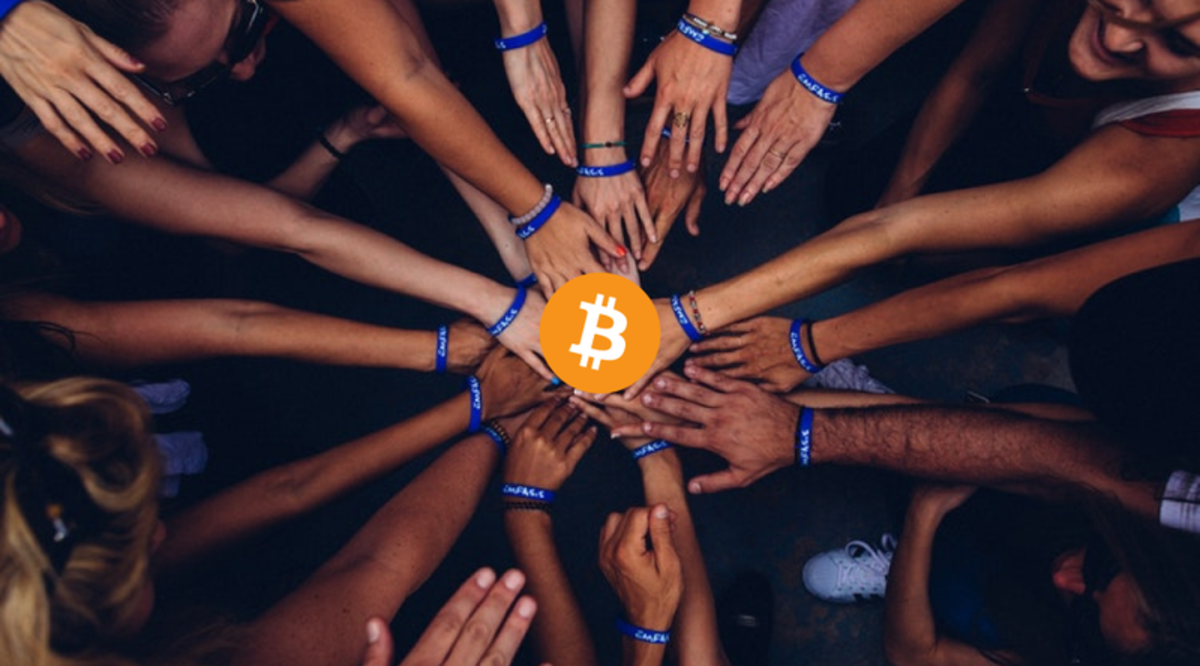
Can bitcoin be used for social good? If anyone thinks so, it’s Ray Youssef, the CEO of peer-to-peer bitcoin platform Paxful.
A successful entrepreneur in the crypto and blockchain space, Youssef comes from humble beginnings and understands the importance of maintaining control over one’s finances. Marred by memories of homelessness and extreme monetary strain, Youssef’s journey to build Paxful was an arduous one.
“When my mother got divorced and lost her home that she had put so much into, I went into higher gear,” he explained in an interview with Bitcoin Magazine. “My first two startups were successful, but then I had 11 failed projects in a row. I took risks and kept taking them until my savings were gone, and I was so busy working on Paxful, trying to get it to work, that when I lost my apartment I went for walks at night and slept in a new place when my friends couldn’t bunk me.”
Youssef says things took a positive turn when he and his business partner chose to get serious about entering the crypto scene. “A fellow bitcoin enthusiast told us about how you could sell bitcoins and make a profit,” he says. That encounter made him look more closely at the world of peer-to-peer bitcoin trading.
“We didn’t know its potential back then — we just saw that it worked for us and we wanted to make it even easier for other people to do the same, whether to start a business online or just get extra rent money.”
Today, Paxful is a peer-to-peer online bitcoin platform that connects BTC purchasers with sellers. Currently, the site offers over 300 ways to purchase bitcoin including credit and debit cards, PayPal, Western Union transfers and even Amazon gift cards.
Buyers start out by finding an offer they like. They then work one-on-one with an experienced seller who guides them through the purchase process via online chat. Once everything is set, they pay the seller directly from a selected account to receive their coins.Every seller is verified to offer customers the highest level of safety, and Paxful will soon implement KYC in an effort to further protect buyers.
Once his marketplace was ready, Youssef convinced his closest friends to give it try. Things began to grow from there, but his big break came from a phone call he would receive one fortuitous morning:
“I left my personal mobile number on the website to help people directly, but no one ever called until one lady desperately in need of bitcoins called me at 4 a.m. yelling at me in pain and claiming that she was down to her last $13. I believed her, and the crying baby in the background was the icing on the cake. We had to help her. The problem was she had no bank account, and sites like Coinbase and other bitcoin brokerages had no solution for the unbanked. She had gotten the run around for two days and needed just $5 in BTC.”
Youssef was able to provide the woman with the finances she needed, and the rest is history. He says that the company truly began the day she called.
“She led us to realize that gift cards were the perfect way to onboard the unbanked to crypto,” he says. “She and all the others that followed taught us that bitcoin is the universal currency the world needs, especially the unbanked. They were the people that bitcoin was supposed to help, but no one was helping them or even trying. My co-founder and I did not sleep for a week, and we redid the entire system to make it usable for the non-techy, unbanked user.
“Now, instead of me having to be on the phone with people for an hour to walk them through buying their first bitcoin and sending it to pay for something, people are able to figure it out themselves through Paxful’s tailor-made system. No one in crypto ever took the time to build a simple onboarding market and wallet for ‘normal people,’ let alone the unbanked. We did.”
Paxful has been operating in full-form ever since, and Youssef has never looked back. As the platform onboarded more customers, Paxful has given Youssef and his team the opportunity to extend their bitcoin services to much larger causes.
Among the company’s latest projects is its building a blockchain technology hub in Lagos, Nigeria. Youssef says that bitcoin has become extremely popular in several regions of Africa and has empowered young entrepreneurs to build wealth in ways nobody could have foreseen.
Furthermore, Youssef began #BuiltwithBitcoin in late 2017, an initiative designed to boost the cryptocurrency community’s involvement in humanitarian projects. The project got its start with Youssef donating roughly $50,000 of his own money toward the construction of a new school in Rwanda. This has led to plans for a second institution. Other projects include a scholarship initiative for Afghan refugees, a Rwandan water tank project and food drives in Venezuela, which Youssef confidently states could become the first official “bitcoin nation” in the future.
Youssef describes bitcoin as a “universal currency” whose potential has barely scratched the surface. He says there are “currency wars” brewing in countries like Venezuela and Turkey, and bitcoin is the strongest weapon.
“Wealth preservation is the first use case for bitcoin,” he explains. “People in currency wars can buy bitcoin to store their value and even use it to pay bills in other countries by ‘borrowing a bank account.’ This just means they sell it to a peer on Paxful and they use their bank account to pay a bill for them to another local bank.”
He also lists commerce as one of bitcoin’s biggest factors. People can sell their goods to anywhere they can ship them. They are then paid in bitcoin, which can be converted to fiat currency. There’s also a strong case for bitcoin’s use for remittance, in which someone can send money to family members abroad without processing times and banking fees.
“The best thing about bitcoin is that it’s the core part of the #p2pfinancial revolution, and this means wealth and opportunity for entrepreneurs all over the world that didn’t even think being an entrepreneur was possible,” Youssef comments.
“They can become vendors on #p2pfinance platforms and help onboard their communities to bitcoin while earning profit at the same time. This is how you really make a day-to-day difference in people’s lives. You show the ones most ready to act a better way, and their communities grow around them. There are single mothers who first came to bitcoin in fear and desperation, and now make five figures a month selling bitcoin. This is just the start.”
Overall, Youssef is grateful for his past hardships as they taught him lessons about survival, humility and what was “vital” in life. He says it was these past experiences that showed him how to make Paxful a success and understand where his customers would be coming from, mentally and emotionally.










